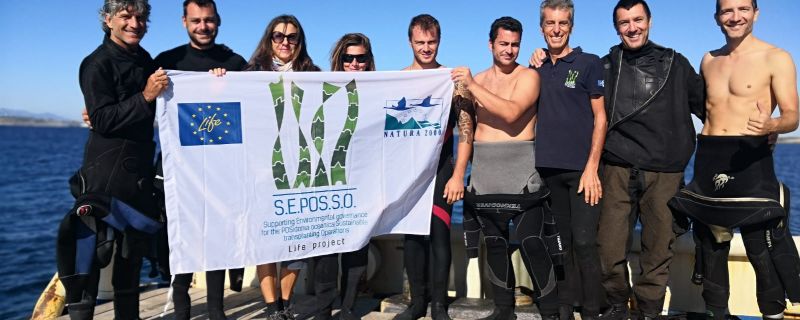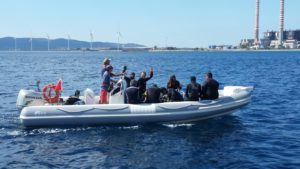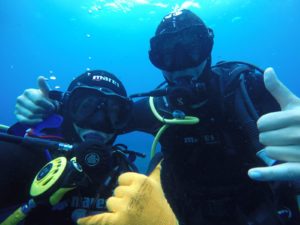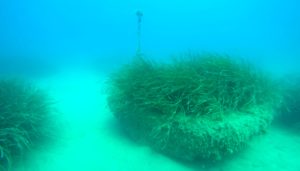
- ACTION B.2,NEWS,SEPOSSO
- No comments
As part of the events scheduled in Piombino (LI) between 3 and 6 September 2019, was carried out the second series of technical-scientific dives planned for the Piombino study (Action B.2). The activities were organized with the simultaneous involvement of the ISPRA, ARPA Toscana (ARPAT), Rome University “Tor Vergata”, University of Palermo (DISTeM) and the Port System Authority of the Northern Tyrrhenian Sea (ASPMTS).
During the dives the operators were able to assess the conditions of Posidonia oceanica transplantation, carried out in the Gulf of Follonica in 2014. The transplant, ruled in the relevant decree of Environmental Impact Assessment, was done as a compensation measure for the impact produced from the dredging of the access channel to the port of Piombino. The transplant was carried out by explanting 340 prairie plates from the dredging area, each about 4 square meters in size, and transferring them to areas identified as suitable in the Gulf of Follonica.
The new monitoring protocol, in addition to the existing video-photographic investigation, has allowed the acquisition of data in the entire transplant area on more than 60 clods, equal to about 20% of all the transplanted clods. From preliminary observations came a high variability in the conservation of clods, some of which are in good condition, others totally compromised, eroded by hydrodynamic action, while others in an intermediate state.
The monitoring dives conducted from 3 to 6 September were added to those already carried out within the Life SEPOSSO during 2018 (exploration and surveys 2018 on the Piombino transplant) and the 3 monitoring campaigns carried out between 2014 and 2017 with annual frequency. The detailed results of these activities will be fundamental to increase the knowledge base that will lead to the implementation of good practices to be used in the transplant management platform (PTWP) whose implementation is one of the main objectives of the Life SEPOSSO project.




